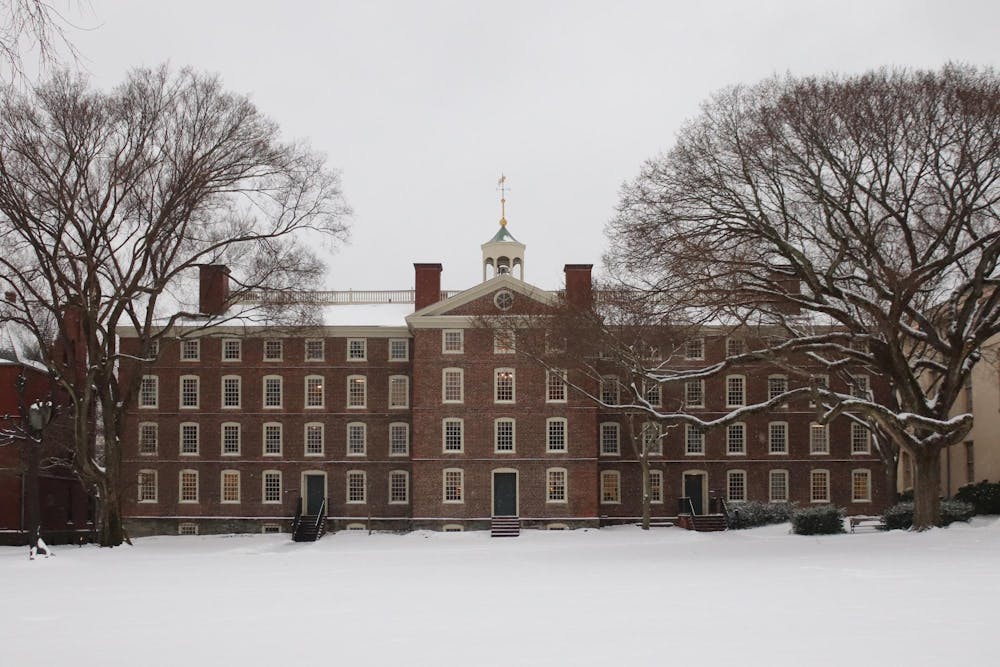Brown advised international students, faculty, staff members and scholars to return to Providence before Jan. 20, when President-elect Donald Trump is set to take office, according to an email reviewed by The Herald.
The email was sent to all community members at Brown without a U.S. passport.
Throughout his campaign, Trump pledged to launch the “largest deportation” effort of undocumented immigrants in U.S. history.
Approximately 408,000 undocumented students are currently enrolled in American colleges and universities.
Trump has also vowed to reinstate his 2017 travel ban, which affected predominantly Muslim countries. The restriction was later extended to North Korea, Venezuela and Chad.
“It is important to note that at this time, no travel restrictions or bans have been announced or confirmed,” the Office of International Student and Scholar Services, or OISSS, wrote in their Monday email. “Thus, this guidance is precautionary only.”
Other higher education institutions — such as the Massachusetts Institute of Technology, Yale and Wesleyan University — have sent similar advisories to their international students, The Herald previously reported.
According to OISSS, international students may anticipate travel delays after Jan. 20. The Office also advised students to be diligent with carrying and submitting required travel documents.
People from “countries of particular concern” and “special watch list countries” — as designated by the U.S. Secretary of State — or countries previously impacted by federal travel limitations should “be aware of potential travel restrictions or bans,” the email continued.
This list of countries includes Algeria, China, Cuba, Eritrea, Iran, Kyrgyzstan, Libya, Myanmar, Nigeria, North Korea, Tanzania, Russia, Somalia, Sudan, Syria, Venezuela and Yemen.
Past travel restrictions have had “tangible implications for students, faculty and staff at Brown,” said Associate Provost for Global Engagement Asabe Poloma.
Ukrainian student Olha Burdeina ’27, who had already bought her ticket when OISSS sent out the email, decided to switch to an earlier flight.
“I wouldn't say that I'm concerned about coming back to the United States,” Burdeina added. “But it’s a little bit unsettling, and I think it's better to be safe than sorry.”
Chinese student Missy Liu ’27 echoed similar sentiments. She felt “more stress” upon receiving the email, but feels that the travel process will be relatively manageable with the appropriate documents.
For other students, Trump’s immigration proposals pose a larger threat. Salman Aji ’27, who holds a Syrian passport, recalled feeling “deeply disappointed and concerned about the upcoming administration.”
On his first flight to the U.S., Aji said he experienced “repeated ‘random’ security inspections, intrusive questioning and luggage searches.”
“Traveling home is no longer a risk but an impossibility, as leaving the U.S. could mean not being able to return,” Aji continued.
In its Monday email, OISSS reiterated that international students have the option to apply for winter break housing. The Global Brown Center, which also works to support international students, will announce further resources in the coming weeks, said Andrew Heald, director of GBC.
The OISSS did not provide comment at time of publication.
“We remain committed to sharing guidance as more information becomes available, and we will diligently monitor changes in visa and immigration policies, processes and regulations,” Poloma said.
This story has been updated with comment from the Office of International Student and Scholar Services.
Megan is a metro editor covering health and environment. Born and raised in Hong Kong, she spends her free time drinking coffee and wishing she was Meg Ryan in a Nora Ephron movie.





